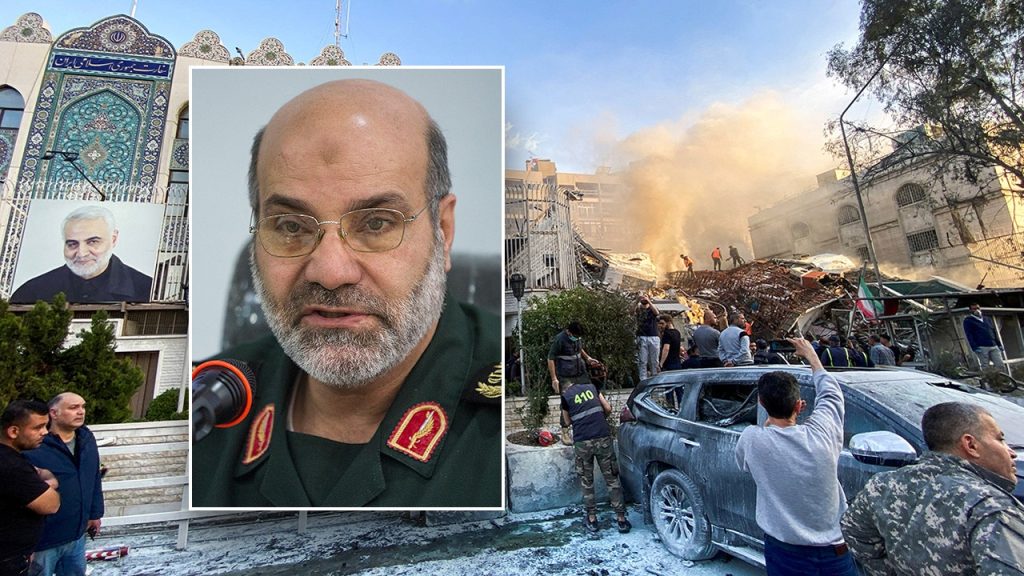The Middle East Media Research Institute (MEMRI) revealed that Iranian General Mohammad Reza Zahedi, who was killed in an Israeli airstrike on April 1, played a key role in the mass murder of 1,200 people, including over 30 Americans, on October 7. Iran’s Coalition Council of Islamic Revolution Forces published a notice of mourning and recognition for Zahedi, who was the IRGC’s commander of its elite Quds Force in Syria and Lebanon. MEMRI translated the notice into English, stating that Zahedi played a strategic role in consolidating resistance efforts and planning Al-Aqsa Flood, which resulted in mass rapes, deaths, and hostage-taking.
A U.S. State Department spokesperson confirmed that Zahedi was a significant leader of Iran’s efforts to threaten Israel and its interests. The IRGC has long supported threats to Israel and the U.S. by arming and funding terrorist groups and militant proxies. Israel’s Ministry of Foreign Affairs also labeled the IRGC as a state-funded terror organization and called on the international community to designate it as such. Both the U.S. and Israel have taken actions to sanction the IRGC and its members due to their terrorist activities.
MEMRI’s analysis of Zahedi’s involvement in the October 7 attacks revealed an official admission by a senior Iranian regime figure acknowledging Iran’s role in planning and executing the terrorist attack. The U.S. and Israel are on high alert as Tehran threatens military strikes against Israel. MEMRI noted that the Iranian Supreme Leader had previously denied Iran’s involvement in the attack, contradicting the recent disclosures.
Iran’s announcement mourning Zahedi’s death warned of a pending attack against Israel, suggesting that the Middle East is on the brink of a wide-ranging open war. Recently, Iran staged antisemitic demonstrations calling for the seizure of Jerusalem and the elimination of Israel. The announcement for Zahedi called for Iranians to participate in the Qods Day march and pay homage to the ‘proud fighters’ who lost their lives on the way to Jerusalem.
The U.S. State Department has classified Iran’s regime as the world’s worst state-sponsor of terrorism. Despite numerous press queries, Iran’s Foreign Ministry and UN Mission did not respond to inquiries. The Trump administration designated the IRGC as a foreign terrorist organization, while major world powers such as France, Britain, Germany, and Canada have resisted calls to sanction the IRGC. Iran’s ongoing threats to Israel and its support of terror groups like Hamas have raised concerns about escalating tensions in the region.
In light of Iran’s increasing provocations and violent rhetoric, the U.S. and Israel face a heightened threat of military conflict. Israel has uncovered evidence of Iran’s financial support for Hamas, leading to concerns about potential attacks and further violence. The international community is urged to take action against Iran’s support for terrorism, particularly through the IRGC, to curb potential security threats. Iran’s role in the October 7 attacks and its continued threats to Israel underscore the volatile situation in the Middle East and the need for diplomatic efforts to address escalating tensions.


